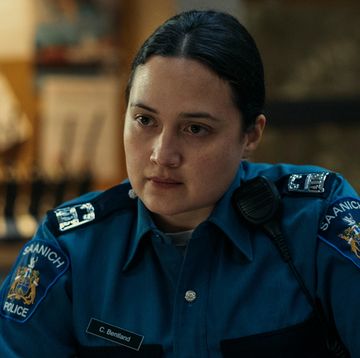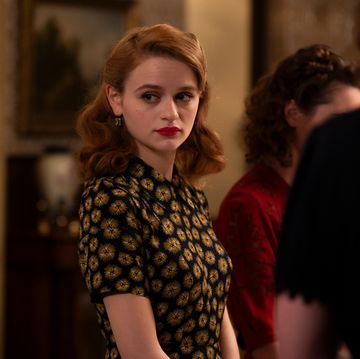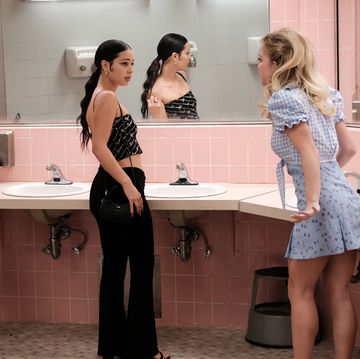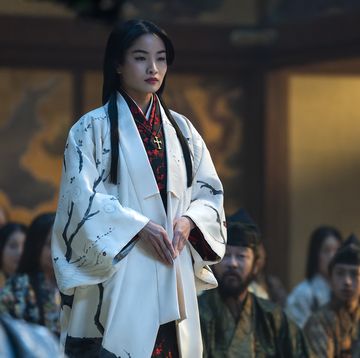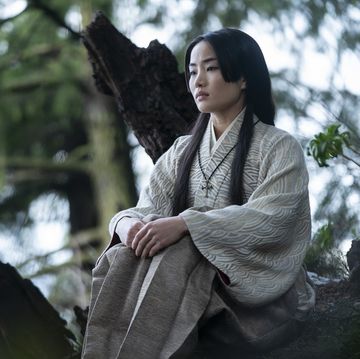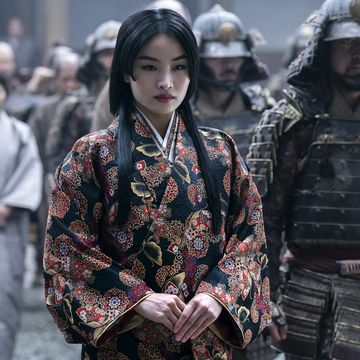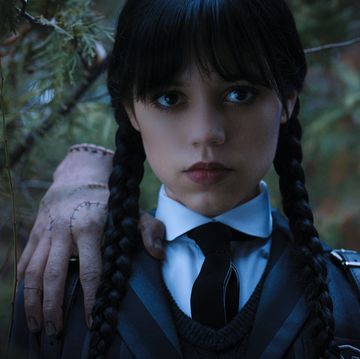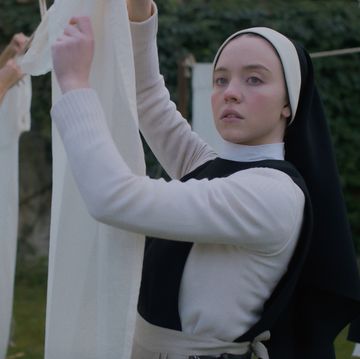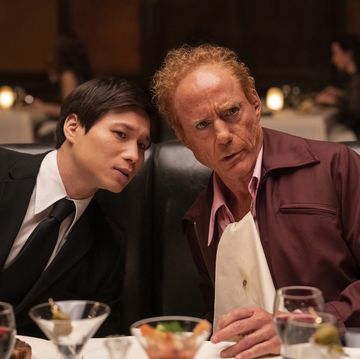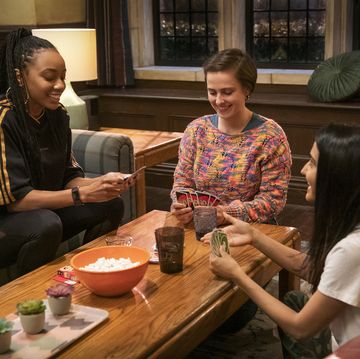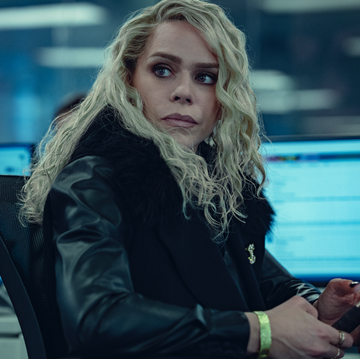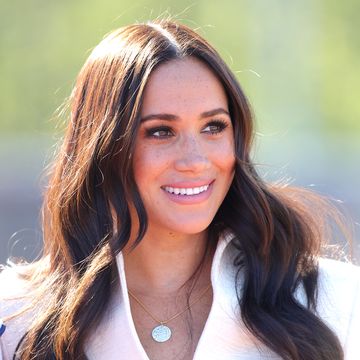There's a reason The Bachelor is gearing up for its 20th season: the reality dating show and its lady-centric counterpart, The Bachelorette, are the stuff of guilty pleasure dreams. There's the whole princess thing (they went super literal with the last bachelor, nicknaming him Prince Farming), a heavy dose of romance (castles! helicopter rides! Disney-esque dates!), and, of course, drama, drama, drama.
But Lifetime's new show, UnReal basically takes the air right out of our rose-filled hot air balloon fantasy. The scripted show, co-created by former Bachelor producer Sarah Gertrude Shapiro, is seriously dark. And while it's not actually about the ABC series, the show—which stars Shiri Appleby and Constance Zimmer—is about the filming of a similar reality TV dating show and all the dirty, manipulative, and downright dangerous stuff that goes on behind the scenes to create the pretty fantasy viewers see. It's twisted and addictive.
Here, we we talk to Shapiro about how she reconciled being a feminist and working on The Bachelor, princess fantasies, and whether it's okay that we love watching 24 women go on a journey to find their husband.
How were able to reconcile working on 'The Bachelor' and being a feminist?
Not very well. But I think that I'm also a realist and I had to pay my rent and like a lot of people, as I've become an adult and figured out how to make a living, you realized the person you thought you were in your freshman year seminar isn't necessarily who you are once you have to pay the rent. We joke, the editors and the writers, about the end of The Devil Wears Prada, when Andy's like 'F you job' and throws her cellphone into the fountain. We always say like the real world version of that, the UnReal version, would be like grabbing her cellphone out of the fountain, putting it in a bag of rice till it dries out and texts her boss saying 'Oh my gosh I'm so sorry, please can I have my job back?'. That sort of 'I'm going to be an awesome journalist' and live in New York? Really? OK, well good luck and hope that works out for you. But I think the way I was able to reconcile it was that I was doing a job, I was good at it, I have co-workers I loved, I was learning stuff about storytelling, all the things we tell ourselves to stay happy along the way.
I also love the shirt Rachel's wearing when we meet her—'This is what a feminist looks like'.
I think that we wanted to put our character's central conflict on her chest—and be the first thing when you meet her—I think we wanted that conflict to be really clear and also just sort of send a signal to our audience that this is more than just making fun of reality TV, it's not a spoof, there's actually a theme. And the idea that also that like, she's probably been carrying that shirt around since her freshman year of college and washed it 500 times and it's almost in rags, she's just hanging onto it by a thread. She's like a fallen feminist and she just hanging onto the last thing she has.
How are we supposed to feel about her? For me, I sympathize with her and then she does these things and then I'm so surprised and torn. It's very complicated.
That's exactly what we want people to feel. I think that a big mission for us was to let female characters be just as screwed up and complicated as male characters have been forever, like Tony Soprano and Walter White and Ari Gold. Like, let it rip. She's a girl, but she can be mean and sweet and lovable and horrible and wonderful and all of those things, because she's a person.
And the drama is not about men, which I think is very interesting. These are unapologetic, career-driven women and the conflict revolves more around that.
Yeah, we're kind of obsessed with that. I'm sure you know about the Bechdel test. We're just really proud of the fact that we matched the Bechdel test, like we passed it with flying colors every time. Our characters talk about work and morality and their families and love and all that stuff that they talk about is from the point of a human being, not from the point of view of a woman.
And actually our mission overall is to humanize all those characters in creating the contestants on the show and not to make fun of them and not to make them paper dolls.
It's such a fitting moment to talk about this with the prevalance of online bullying—it's very powerful to see these characters in the editing room, reading up on the girls' backgrounds and then using that to manipulate them.
Another thing that we've talked about a lot is that in this day and age, contestants can come on the show thinking they know how to beat the system and that they know how to play the game, but they're actually playing an unbeatable game—they don't understand how powerful editing and manipulation is. And that, for people in our generation that have grown up feeling like they can self-edit and self-photoshop and self-curate their own image, to hand over that power to somebody else or a group of people completely, and to be cut off from your phone, Internet, books, friends, everything and have no control over how footage of you is used is really, is so disempowering for the people on the shows that we really have a lot of sympathy for them because we just feel like they don't even—even if they're really, really savvy—you really can't know what you're up against.
So how should we watch a reality TV show or a dating show that obviously isn't real but is being presented to us as reality?
I think our goal is for everyone to have a little more compassion for each other and have a little more compassion for the people on the shows because, I mean, it's fine to have fun at their expense, I guess, but I guess just to think about how that really impacts them and even how that impacts you because spending time being that cruel about other people, like, how does that really impact you?



